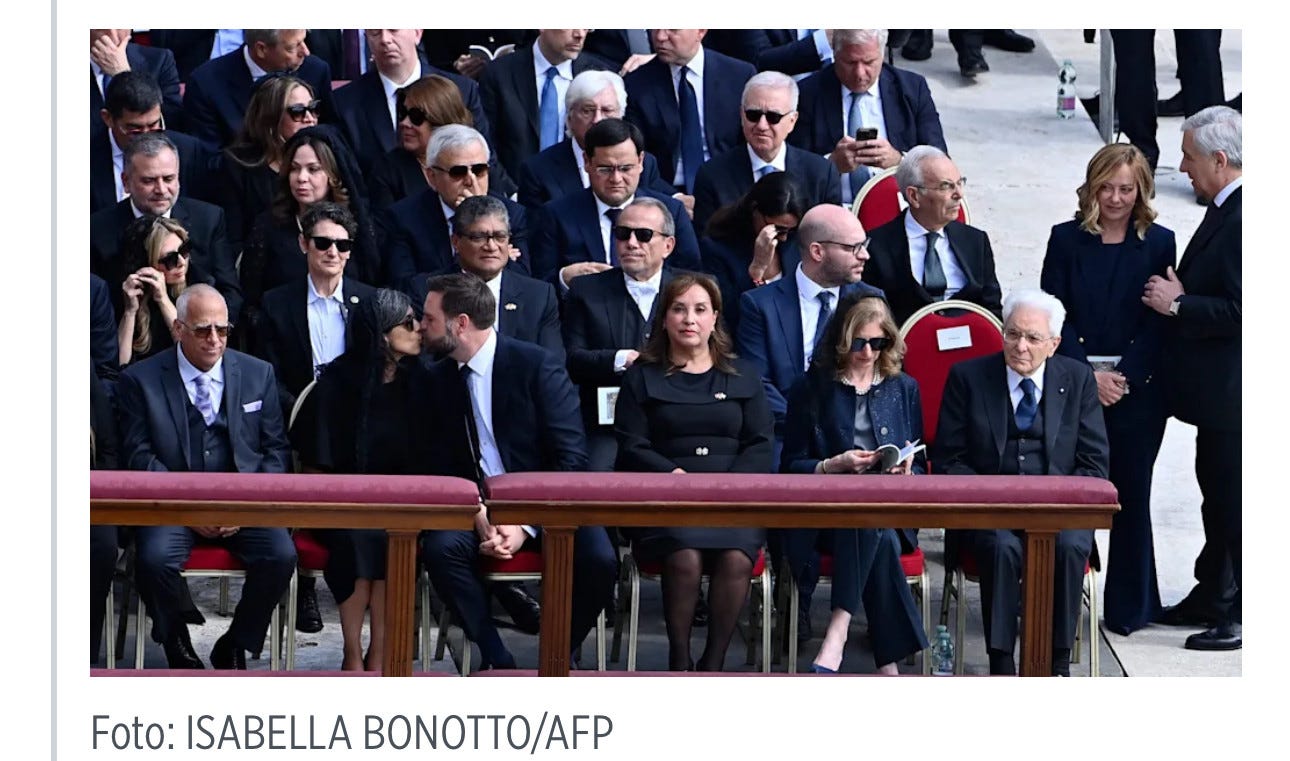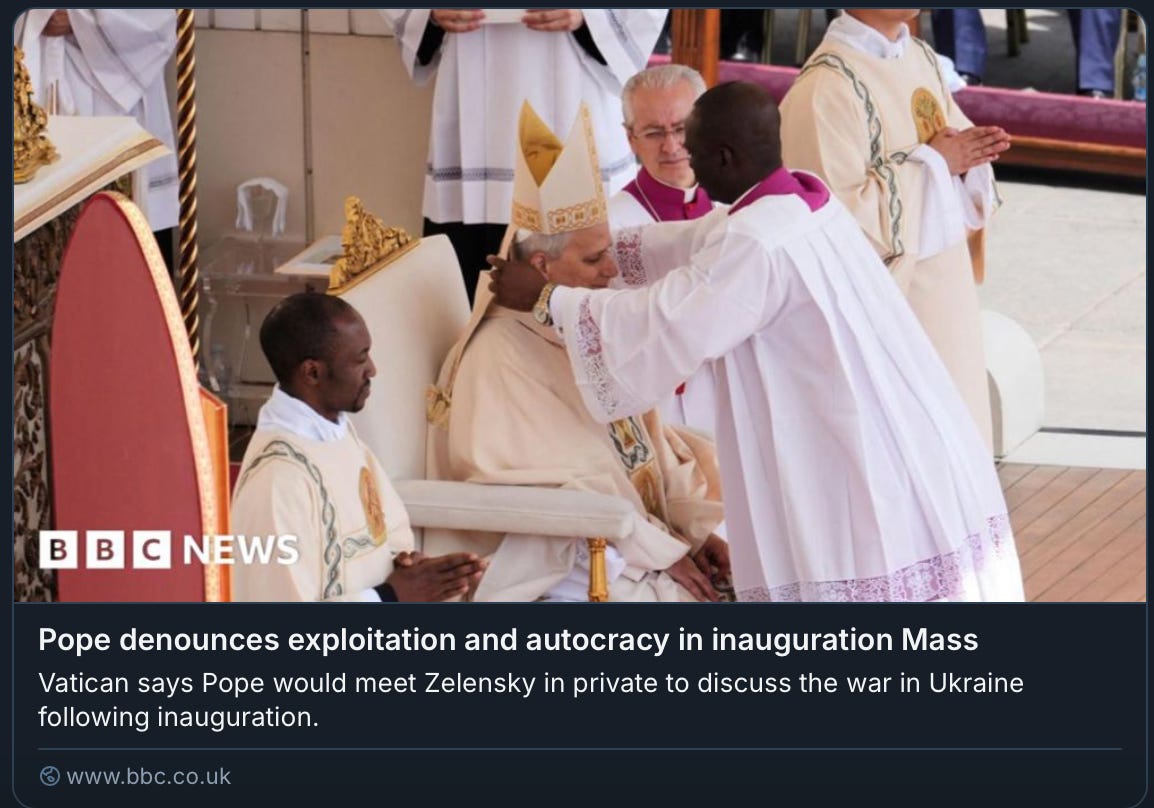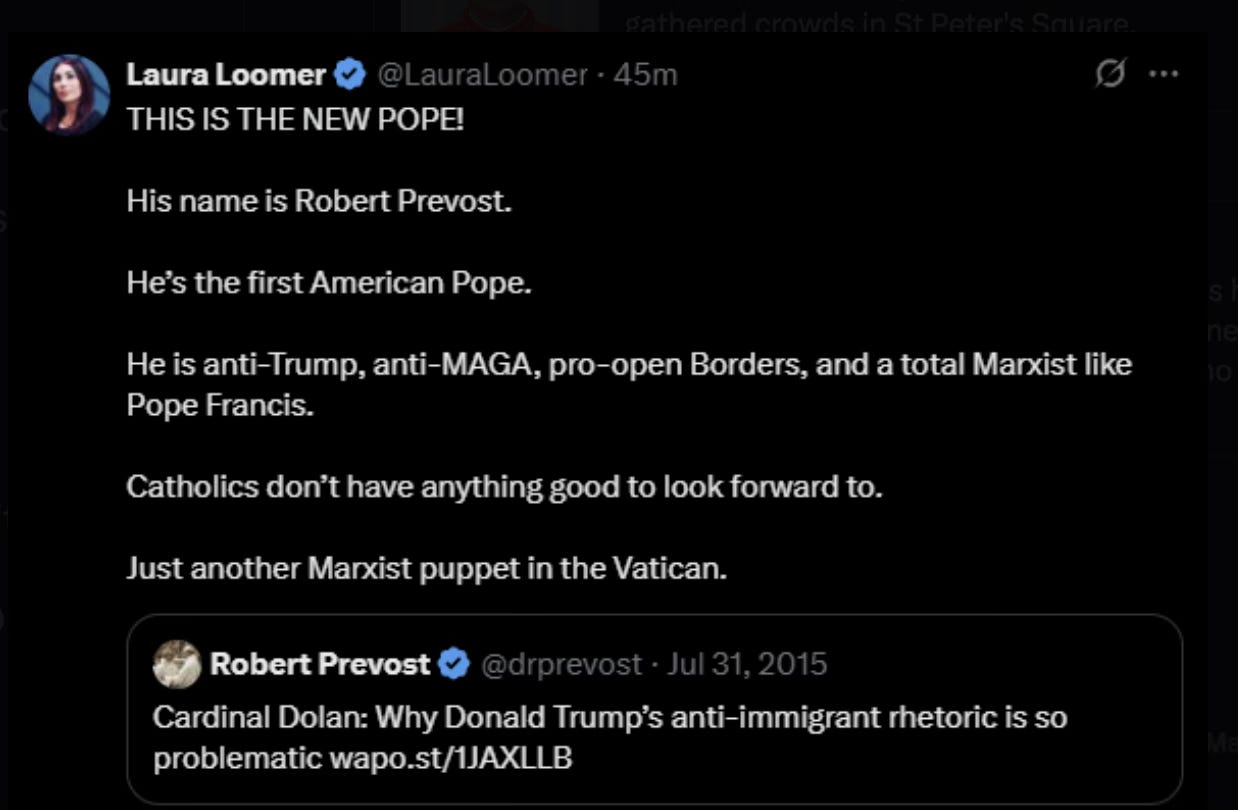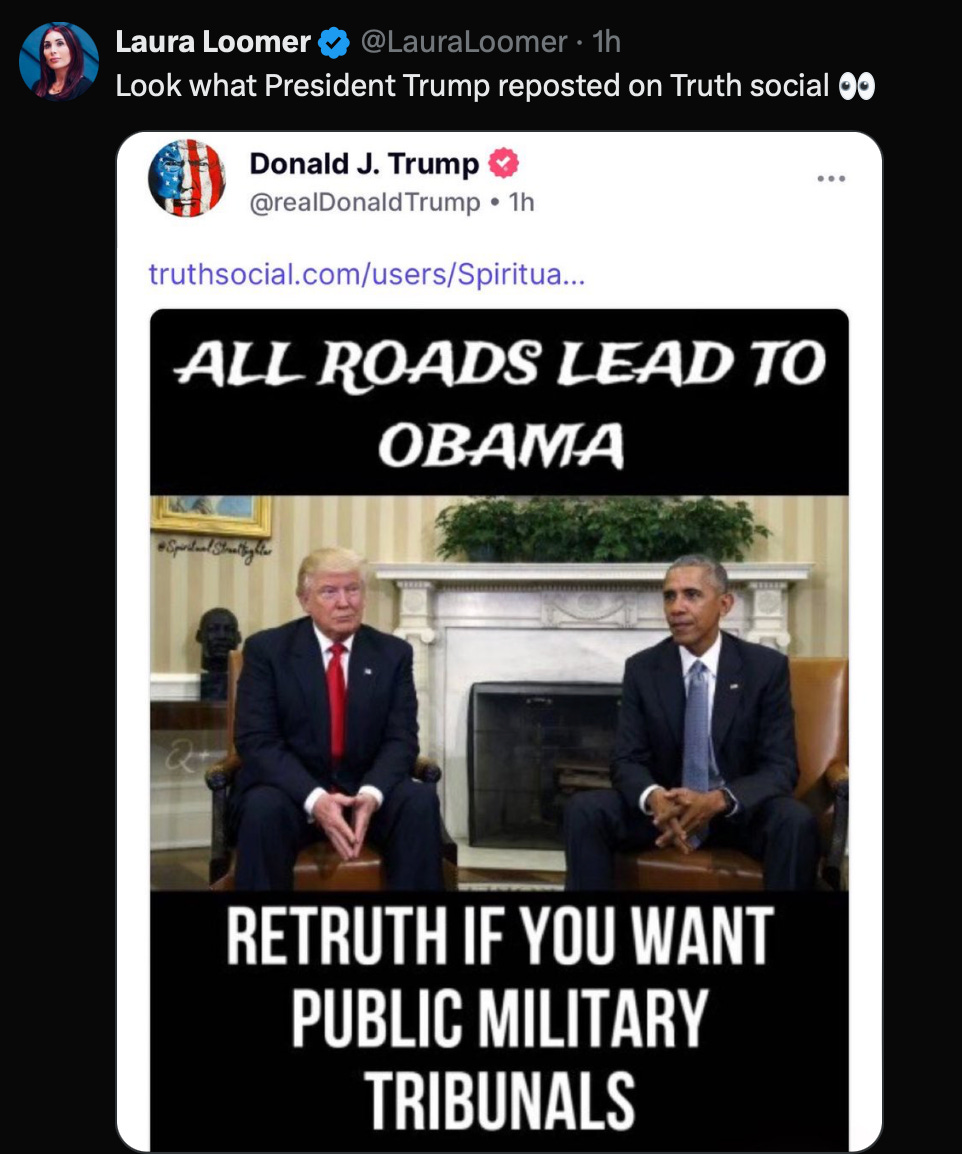How will Pope Leo XIV handle climate?
He's left a few clues. He dropped more today at his Inaugural Mass. But if you expect he'll be Pope Greta, or Francis II, you will be disappointed.
Remember when a multi-racial guy from Chicago who’d spent a chunk of his life in the Global South became the most important American in the world? And many of us projected onto him all our hopes that he’d do the radical transformations needed to fix our biggest problems?
And then were disappointed?
Consider that context and know I’m keeping in mind if one thinks I’m stanning for the multi-racial guy from Chicago who spent a chunk of his life in the Global South and is now the leader of a Church of 1.4 billion people (unsure whether that counts the lapsed like me).
Francis’ Climate Precedent
Twelve years ago, when Jorge Cardinal Mario Bergoglio of Buenos Aires became Pope Francis, his Inaugural Mass homily offered very strong clues1, in light of things he did and said later, that seemed to set a clear theme for his pontificate. In that 1400-word speech, Francis set out the theme of a “protector” and how that translated into a responsibility not to “master and possess” nature but to change how we think about it:
In the end, everything has been entrusted to our protection, and all of us are responsible for it. Be protectors of God’s gifts!
Whenever human beings fail to live up to this responsibility, whenever we fail to care for creation and for our brothers and sisters, the way is opened to destruction and hearts are hardened. Tragically, in every period of history there are “Herods” who plot death, wreak havoc, and mar the countenance of men and women.
Please, I would like to ask all those who have positions of responsibility in economic, political and social life, and all men and women of goodwill: let us be “protectors” of creation, protectors of God’s plan inscribed in nature, protectors of one another and of the environment. Let us not allow omens of destruction and death to accompany the advance of this world!
Francis went on to issue a papal Encyclical, Laudato Sì, which put a lot more structure and detail on what he meant by that when it comes to “Our Common Home” - and it landed just as the COP negotiations that led to the Paris Agreement2 were underway.
Leo XIV’s Big Speech
Today was the turn of the former Father Robert “Bob” Prevost, the White Sox fan from Chicago’s south side, to give his formal inaugural homily as Pope Leo XIV, witnessed by church leaders, diplomats, and leaders who wanted to be part of the big day. Including JD Vance. (Though he did seem at times distracted: )
Many have been scouring Leo’s background - this New York Times profile (gift link) is one of the best-reported - for hints of how he might approach some of the issues on which a lot of people will want to know where he stands:
These were dramatizations of dramatic times that Father Prevost had lived through as a missionary who found his voice, in Peru. Now, as he takes over an often divided Roman Catholic Church and the most prominent pulpit on earth, his voice will be heard globally when authoritarianism is on the rise, technological leaps are disrupting society, and the most vulnerable are being threatened by conflicts, economic inequality and climate change.
Today in his homily, a tight 1200-or-so words, Leo hit on some of those very themes. It wasn’t as clearly focused as Francis’ inaugural homily seems in hindsight - but usually these things grow in significance over time. A few relevant sections stood out:
Autocracy
It is never a question of capturing others by force, by religious propaganda, or by means of power.
… Peter must shepherd the flock without ever yielding to the temptation to be an autocrat, lording it over those entrusted to him.
On the contrary, he's called to serve the faith of his brothers and sisters and to walk alongside them.
Were I doing Vatican PR and needed to give some wiggle room if pressed on whether he was speaking about happenings in Washington, I’d easily pivot to saying something like “His Holiness was speaking about his approach to his Petrine ministry, clearly - and wants to be clear he sees listening and service to be some of the most important ways to lead.”
But that’s not how others will have heard it. (No TruthSocial post just yet to know for sure).
Exploitation of Earth’s Resources
Brothers and sisters, I would like that our first great desire be for a united church, a sign of unity and communion, which becomes a leaven for a reconciled world. In this our time, we still see too much discord, too many wounds caused by hatred, violence, prejudice, the fear of difference, and an economic paradigm that exploits the Earth’s resources and marginalises the poorest.
For people who have heard the last few Popes this won’t sound radically new3.
(Though someone may want to do a wellness check on Laura Loomer4 or JD Vance [we’re saving that for dessert].)
Where I think Leo departs from his immediate predecessors is a more deliberate re-centering of concern for “the poorest” when it comes to talking about his whole job, including talking about the climate of “Our Common Home”. More experienced Vatican-watchers than I certainly got that impression:
The “missionary spirit” made “restless by history”.
This is the missionary spirit that must animate us, not closing ourselves off in our small groups nor feeling superior to the world. We are called to offer God's love to everyone in order to achieve that unity, which does not cancel out differences, but values, the personal history of each person and the social and religious culture of every people.
He continues, building to his close:
… Let us build a church founded on God's love, a sign of unity, a missionary church that opens its arms to the world, proclaims the word, allows itself to be made restless by history and becomes a leaven of harmony for humanity together.
For those looking for a clue about whether Leo will be “progressive” he does offer that intriguing “made restless by history”.
So Will He Be a “Climate Pope”?
Too soon to tell. But as I wrote elsewhere, there are plenty of reasons to think that his experiences in Peru give him a less abstract view of climate impacts.
In 2013, Francis used “protector” >20 times in his inaugural address.
“Creation” or “Earth” appear a combined 137 times in Laudato Sì, the words “poor” or “poorest” a combined 55.
This is a person with different priorities.
JD Vance
But before you go, here’s a clip you will see a lot of. JD Vance and his wife Usha got a moment with the pope as they queued with other world leaders for a grip-and-grin. The now-deleted Robert Prevost X account set tongues wagging for its echoing criticisms levelled directly of JD Vance and US policy by others, including Leo’s predecessor.
Here’s the final moments of encounter between Vance and Leo. I’m no body language expert5. Draw your own conclusions:
Choosing “Francis” as his papal name, the first pope to do so, naming himself after the Catholic saint most associated with care for nature, was also an early hint.
Let’s stipulate the Paris Agreement had deep flaws and potentially irreconcilable tensions but that it represented a genuine advance.
In Laudato Sì, Francis went out of his way to argue he was in continuity with what his immediate predecessor - not normally seen as a progressive - had to say:
My predecssor Benedict XVI likewise proposed “eliminating the structural cases of the dysfunctions of the world economy and correcting models of growth which have proved incapable of ensuring respect for the environment.”
…Pope Benedict asked us to recognise that the natural environment has been gravely damaged by our irresponsible behaviour. The social environment has also suffered damage. Both are ultimately due to the same evil: the notion that there are no indisputable truths to guide our lives, and hence human freedom is limitless.
…With paternal concern, Benedict urged us to realise that creation is harmed “where we ourselves have the final word, where everything is simply our property and we use it for ourselves alone. The misuse of creation begins when we can no longer recognise any higher instance than ourselves, when we see nothing else but ourselves.”
Not sure I’d be pulling the “let me give you a pat on the elbow” in a show of familiarity and attempted dominance in that exchange. But I’m not imagining the literal “shake it off” reaction in the next second.









